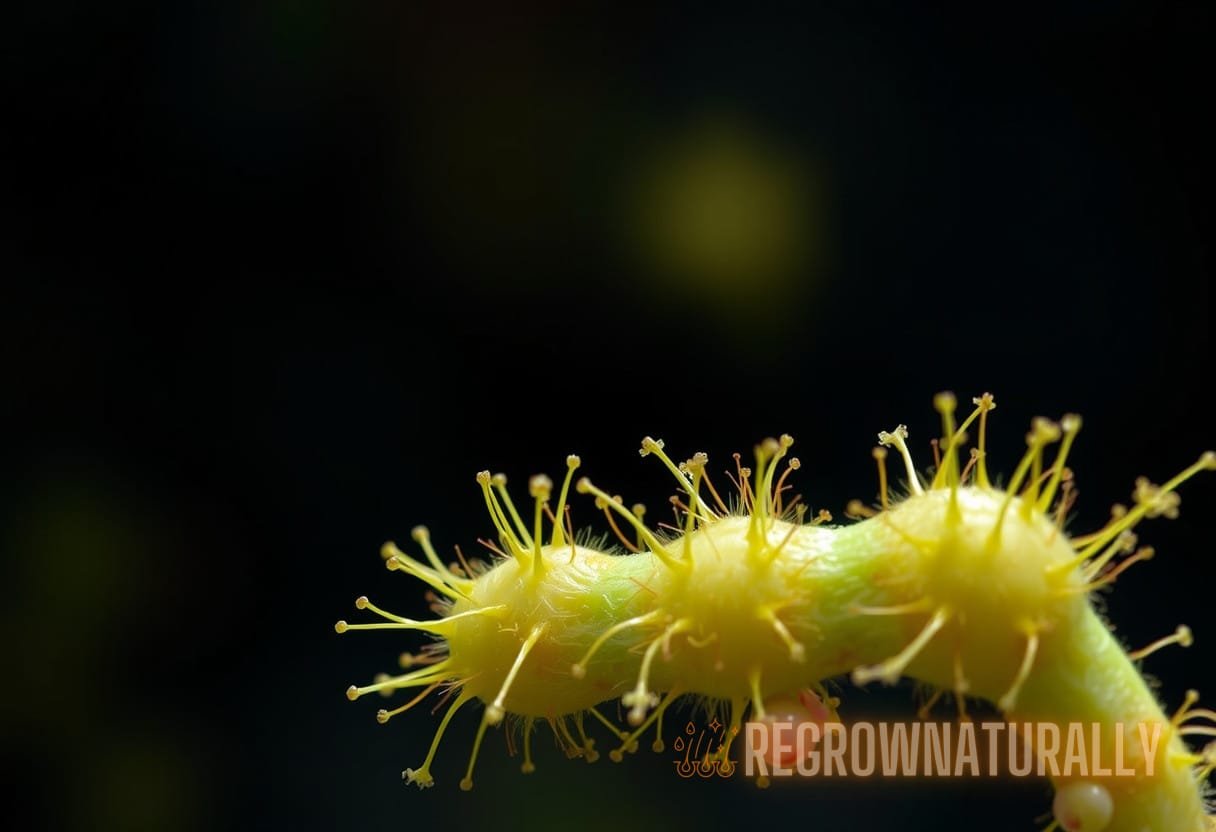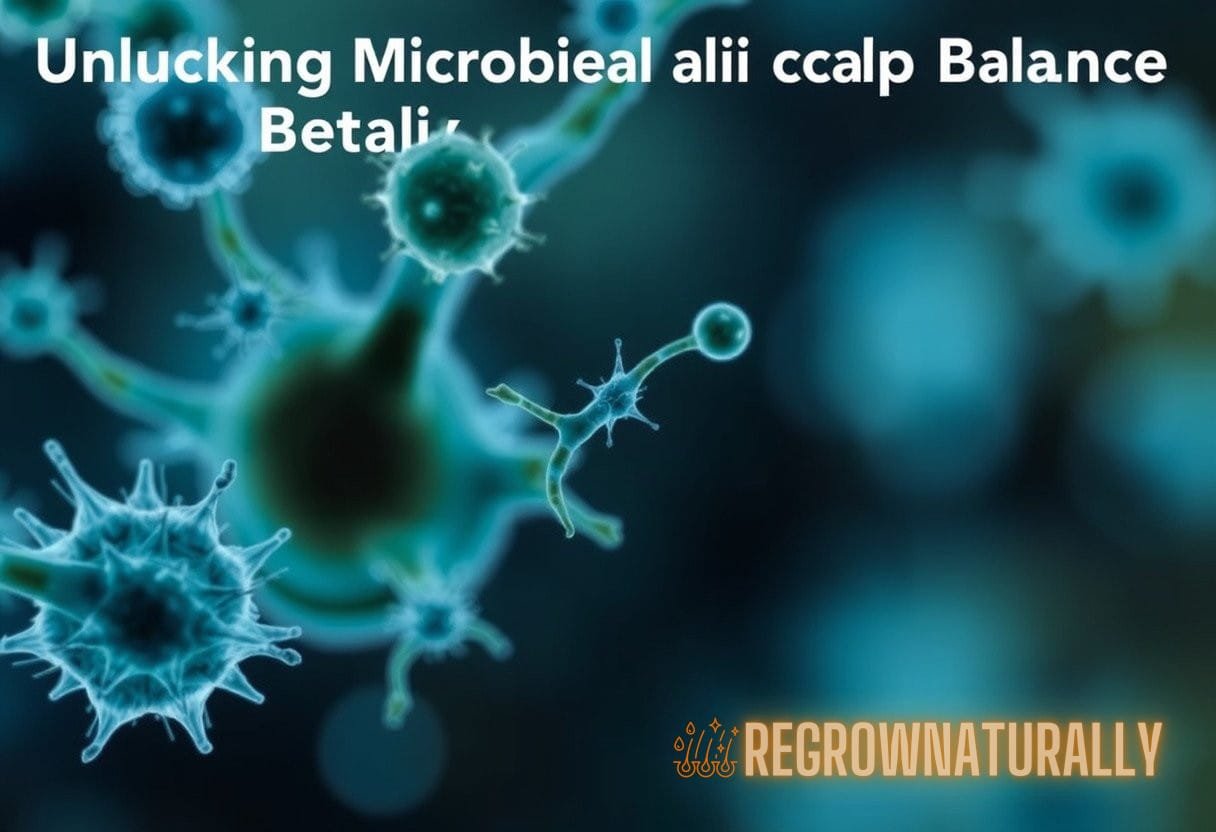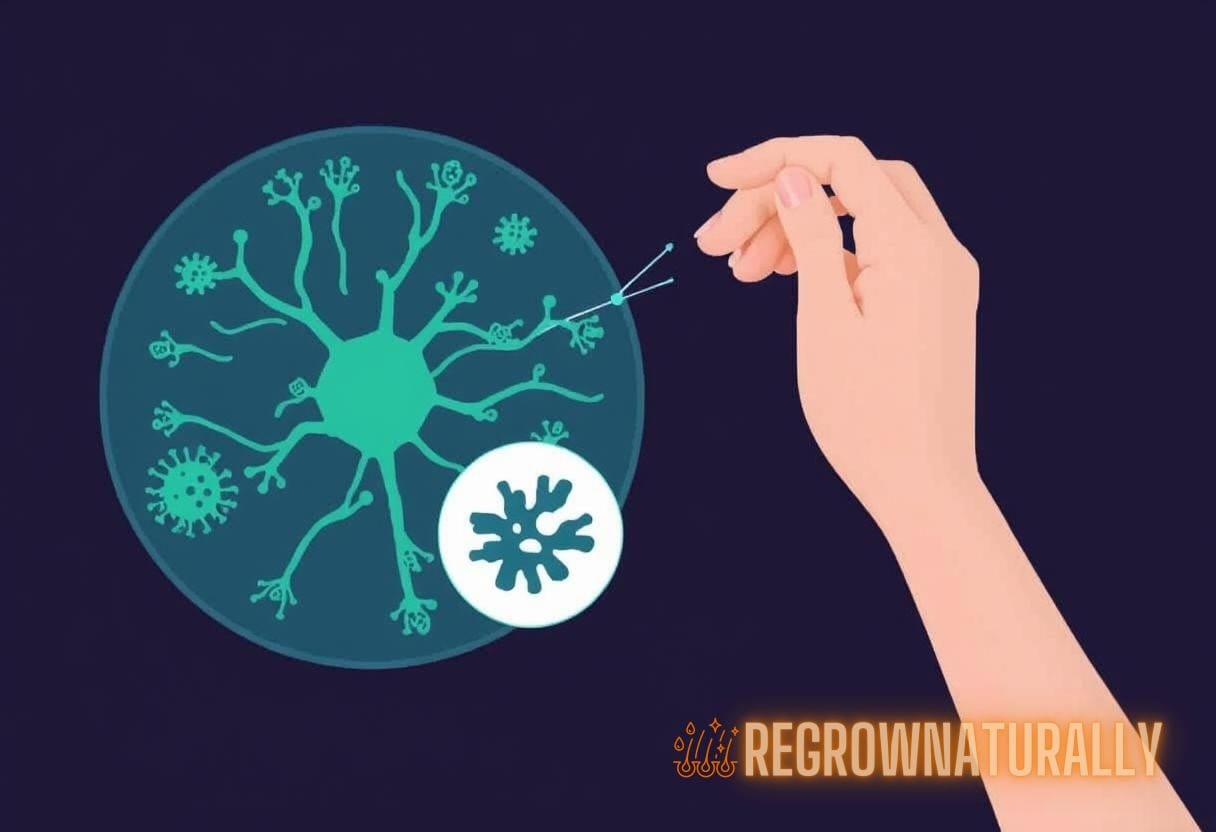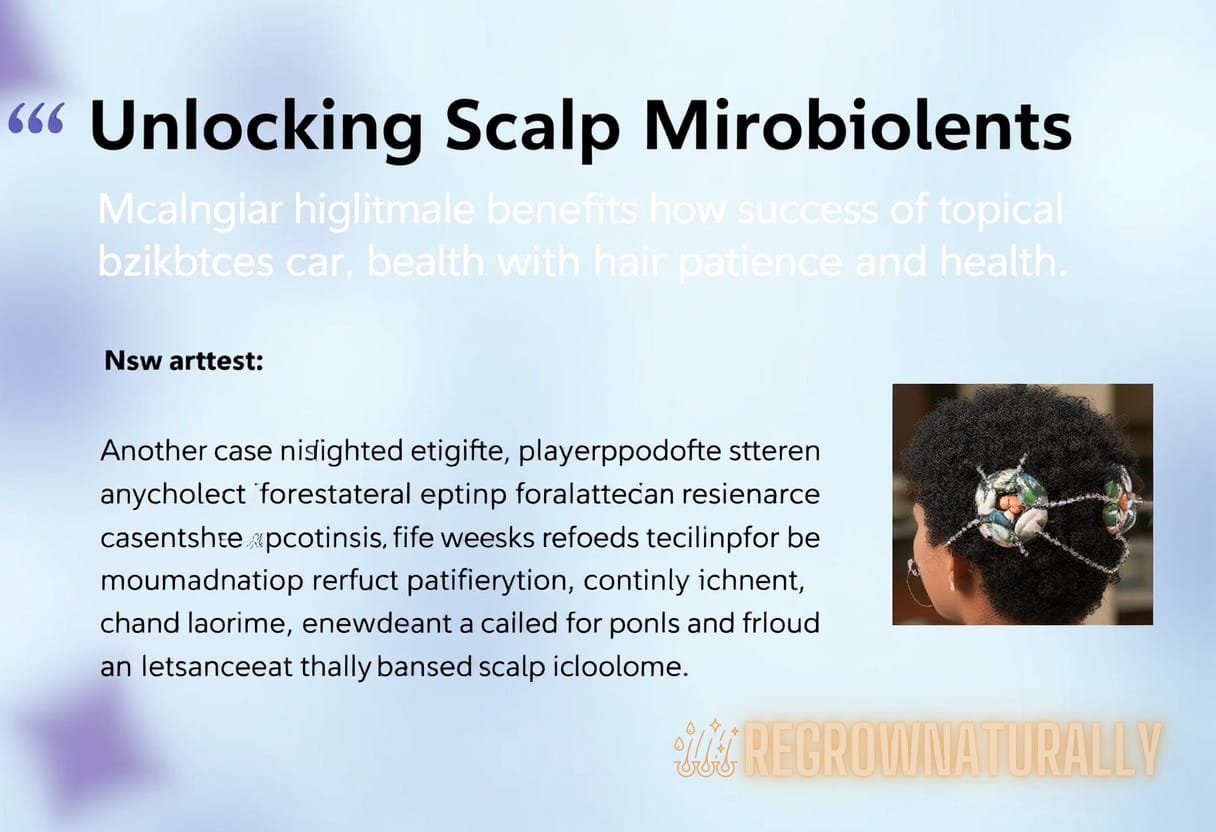Exploring the Invisible Influence: How Beneficial Microbes Create a Thriving Scalp Ecosystem for Enhanced Hair Health
The human scalp is a unique environment teeming with microorganisms. These beneficial microbes play a critical role in maintaining a healthy microbiome, which is essential for microbial scalp balance.
The Importance of the Scalp Microbiome
The scalp microbiome consists of a diverse community of bacteria, fungi, and viruses that collectively contribute to microbial scalp balance. Research has shown that a healthy scalp microbiome can prevent conditions such as dandruff, seborrheic dermatitis, and even hair loss. According to a study published in the journal Nature Microbiology, the balance of these microbial communities is essential for keeping pathogenic organisms in check and promoting overall scalp health.
Some key functions of the scalp microbiome include:
- Barrier Protection: Beneficial microbes create a physical barrier that can prevent pathogenic microbes from colonizing the scalp.
- Immune Modulation: The microorganisms help in modulating the immune response, thereby reducing inflammation and irritation on the scalp.
- Nutrient Synthesis: Certain microbes can synthesize essential nutrients, such as biotin and folic acid, which are crucial for hair growth.
Composition of the Scalp Microbiome
The scalp microbiome is primarily composed of various species of bacteria and fungi. Some common microbial inhabitants include:
- Staphylococcus: This genus of bacteria consists of both pathogenic and non-pathogenic species, with the latter playing a vital role in maintaining the scalp’s balance.
- Malassezia: A type of yeast known to flourish on oily skin, analyzing its levels can predict various scalp conditions such as dandruff.
- Propionibacterium: Associated with acne, some species may also be beneficial for scalp health.
Factors Affecting the Microbial Ecosystem
Several external and internal factors influence the composition and balance of the scalp microbiome:
- Diet: A diet rich in probiotics and prebiotics may promote a healthier scalp microbiome.
- Hygiene Practices: Overuse of harsh shampoos can disrupt the microbial balance, leading to an overgrowth of harmful microorganisms.
- Environmental Factors: Pollution and weather conditions can also alter the microbial landscape.
In a study published in Frontiers in Microbiology, researchers found that individuals living in urban environments had a significantly different microbial composition on their scalps compared to those in rural areas, highlighting the impact of environmental factors.
Signs of Imbalance in the Scalp Microbiome
Maintaining a microbial scalp balance is crucial for overall hair health. An imbalance in the scalp microbiome can manifest in various ways:
- Dandruff: Often caused by an overgrowth of Malassezia yeasts.
- Itchiness: Potentially resulting from inflammation due to pathogenic microbial overgrowth.
- Hair Loss: Severe imbalances can contribute to conditions like telogen effluvium.
If you notice persistent symptoms such as those mentioned above, it may be time to evaluate your scalp care routine and consult a dermatologist for personalized advice and treatment options.

How to Promote a Healthy Scalp Microbiome
Here are several strategies to help maintain microbial scalp balance and encourage a thriving scalp ecosystem:
- Use Gentle Hair Care Products: Look for shampoos and conditioners free from sulfates and parabens that may disrupt the microbial balance.
- Incorporate Probiotics into Your Diet: Foods rich in probiotics, like yogurt and fermented vegetables, may support a healthy scalp microbiome.
- Maintain Hydration: Drinking adequate water supports overall skin health, including the scalp.
- Limit Heat Styling: Excessive use of heat tools can damage the scalp and lead to microbial imbalances.
For more information on how to enhance your scalp health through dietary adjustments, check out our article on Diet for Scalp Health.
Real-World Case Studies on Scalp Microbiome
Understanding the role of the scalp microbiome in hair health can be further enhanced by examining real-world case studies. For instance, a clinical trial conducted with a group of volunteers who suffered from chronic dandruff highlighted the effectiveness of probiotic shampoos. Participants who used the probiotic-infused formula reported a significant reduction in dandruff and improved scalp health after just four weeks of consistent use.
Another case involved patients undergoing chemotherapy, who often experience scalp issues. Different treatment approaches, including ecological shampoos that promote microbial scalp balance, were tested. Results indicated that patients using tailored products reported lower instances of scalp irritation and improved hair recovery post-treatment.
Future Research Directions
The study of the scalp microbiome is still in its infancy, and numerous avenues for future research remain unexplored. Some potential areas include:
- Microbiome-Targeted Treatments: Developing shampoos that specifically target beneficial strains could revolutionize scalp care.
- Longitudinal Studies: Observing microbial changes over time in relation to different treatments can provide valuable insights.
- Understanding Hair Loss Conditions: More knowledge about how various microbial communities contribute to diseases like alopecia is needed.
For an in-depth look at the latest advancements in scalp microbiome research, visit the National Institutes of Health database.
The Role of Dermatologists
Dermatologists play a crucial role in diagnosing and treating scalp-related issues stemming from microbial imbalances. They possess the expertise to assess the condition of your scalp and recommend appropriate treatments. If you’re struggling with persistent issues, consider scheduling an appointment for a thorough evaluation.
Additionally, dermatologists can offer personalized advice on skincare products that promote microbial scalp balance, ensuring you receive the best possible care for your specific needs.
Conclusion: Embracing the Microbial World
As we continue to uncover the complexities of the scalp microbiome, understanding its impact on hair health becomes increasingly vital. By prioritizing microbial scalp balance through informed decisions regarding diet, product selection, and self-care practices, we can foster a healthy scalp that supports strong and vibrant hair.



